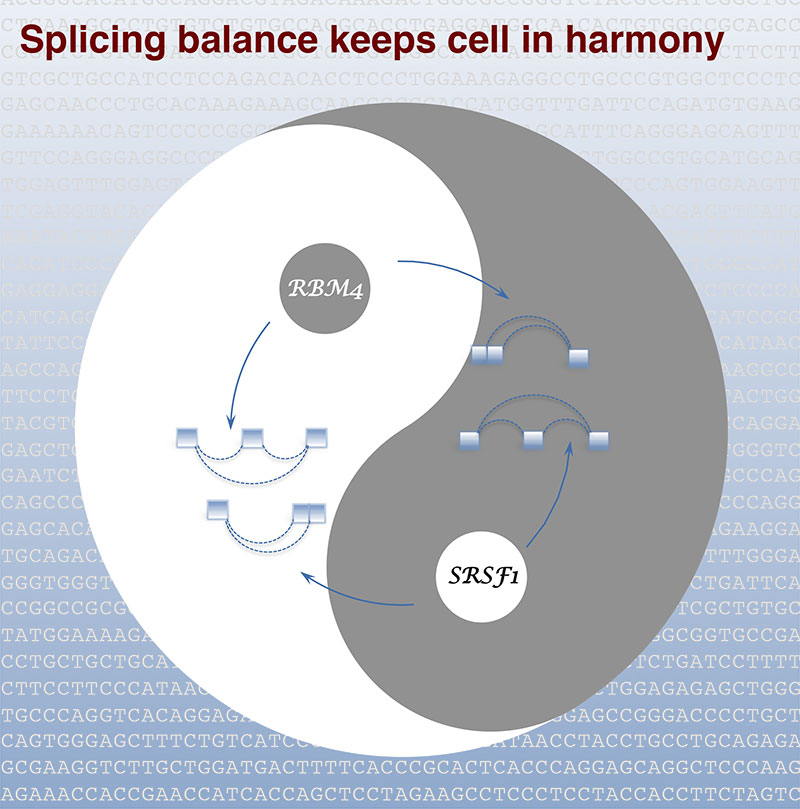Zefeng Wang’s paper published in Cancer Cell this week shows that the splicing factor RBM4 suppresses proliferation and migration of various cancer cells by specifically controlling cancer-related splicing.


Dr. Zefeng Wang, an Associate Professor in the Department of Pharmacology has discovered that RBM4, a protein molecule essential to regulating gene splicing, is decreased dramatically in cancer patients. Further, the RBM4 level correlates positively with improved survival.
In particular, RBM4 regulates gene splicing so that long forms are spliced into short forms which have anti-cancer properties. It also suppresses another molecule that splices genes, SRSF1, which is highly expressed in cancer cells. When the amount of RBM4 is decreased, more alternate gene splicing occurs, leading to cancer cell proliferation and migration.
“Wang said that RBM4 is needed in the proper amount so that these genes are spliced properly and don’t contribute to cancer development and metastasis. This means that the level of RBM4 in cancer patients can actually be used to predict their chances of survival.”
“Where we go from here is trying to find out what shuts down RBM4,” Wang said. “We want to find out if we can target RBM4 and manipulate it. We will probably have to target more than one thing to treat cancer patients, but we think RBM4 could be a very important one.”
(~the above quotes are from Mark Derewicz’s article in SOM News September 8, 2014, “UNC researchers find new genetic target for a different kind of cancer drug.” Read the full article here.)
Significance of this study:
This study presents a detailed mechanism of cancer-related splicing dysregulation and indicates that RBM4 is a tumor suppressor with therapeutic potential.
Read the journal article published online in Cancer Cell, Volume 26, Issue 3, 8 September 2014, Pages 374–389. DOI: 10.1016/j.ccr.2014.07.010)
